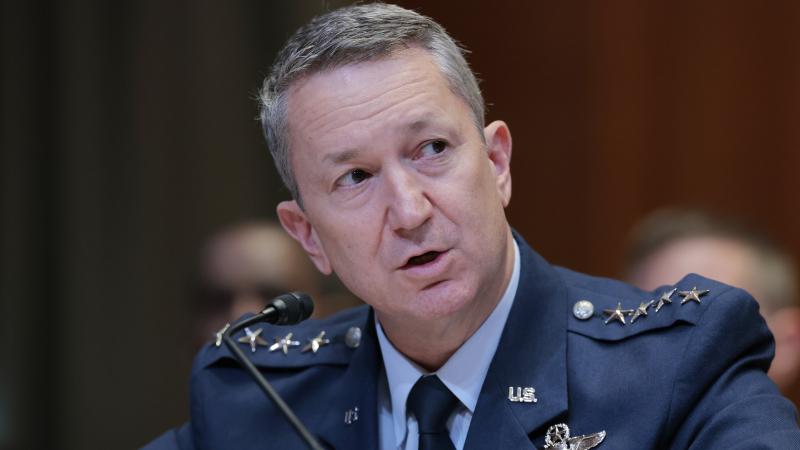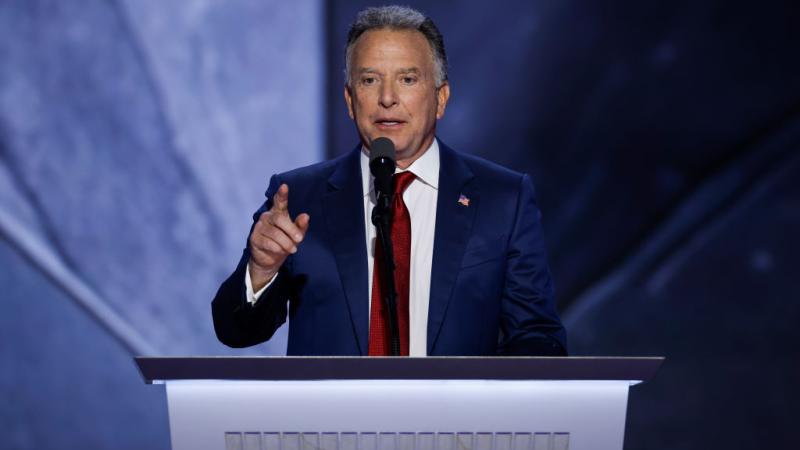Biden doubles down on student debt and Gaza, but poll shows young Americans have other concerns
Recent polling data has suggested the administration is missing the mark with young Americans by addressing foreign conflicts and student debt, as both issues appear to be of less importance to them than key cost-of-living issues.
President Joe Biden has, throughout his tenure, attempted to court younger voters, largely by addressing issues of perceived relevance to their demographic, though some of his efforts to woo them may be falling flat in light of that bloc’s preoccupation with other issues.
Biden in April announced his latest student loan debt relief effort, in which he cancelled roughly $7.4 million in debt affecting more than 277,000 borrowers.
The move brought the total value of cancelled debt during his tenure to $153 billion, a number sure to grow in light of plans he announced earlier the same month to cancel debt for more than 30 million Americans.
On the foreign front, meanwhile, he has become increasingly critical of Israel and the government of Prime Minister Benjamin Netanyahu over his handling of the invasion of the Gaza Strip, with the pair most notably feuding over Israeli plans to invade Rafah. Netanyahu has insisted he will move forward with such an operation, even in the face of U.S. opposition.
Biden has remained silent on the current demonstrations and illegal encampments on college campuses in support of Hamas and against Israel. Some polling data has suggested that younger voters are discernably less likely to support Israel in the conflict than older generations while his student loan debt relief plans have been widely panned as designed to curry favor with debt-saddled college graduate voters.
Recent polling data from the Harvard Kennedy School Institute of Politics, however, has suggested the administration is missing the mark with young Americans by addressing foreign conflicts and student debt, as both issues appear to be of less import than key cost-of-living issues for voters in the critical 18-29 age range.
Conducted March 14-21, the survey questioned 2,010 18-to-29-year-olds and has a margin of error of +/- 3.02%.
What younger voters care about
The latest Harvard Kennedy School Institute of Politics (IOP) Youth Poll, conducted in March and released this week highlighted that inflation and housing stand among the top concerns for respondents in the age bracket, while foreign issues are lower on the priorities list.
"Make no mistake, this is a different youth electorate than we saw in 2020 and 2022, and young voters are motivated by different things,” said IOP Polling Director John Della Volpe. "Economic issues are top of mind, housing is a major concern—and the gap between young men's and young women's political preferences is pronounced."
In ranking the issues, the survey paired each with another in the slate and represented the frequency with which respondents considered one more important than the other.
Inflation placed first with 64% of respondents deeming it more important, followed by healthcare at 59%, housing at 56%, gun violence at 54%, and jobs at 53%.
Corruption (52%), protecting democracy (52%), women’s reproductive rights (50%), education (50%), and immigration (47%), rounded out the top 10 concerns.
Placing fifteenth and sixteenth, respectively, were “Israel/Palestine” at 34% and “student debt” at 26%, with the pair rounding out the bottom of the list. Crime (47%), climate change (43%), taxes (43%), and free speech (40%), placed eleventh through fourteenth.
What they think about Israel and Gaza
Israeli forces invaded the Gaza Strip last year in response to an Oct. 7 raid by Hamas that saw its forces seize border towns, take more than 200 hostages, many of whom were raped. Hamas murdered roughly 1,200 civilians.
The conflict has persisted in the subsequent months, albeit with only limited humanitarian pauses and a permanent resolution does not appear close.
While Washington has expressed support for Israel, the government has also condemned Israeli tactics as excessive and urged the Israel Defense Forces (IDF) to work to limit civilian casualties.
Young voters’ approval of Biden overall stood at 31% while 64% disapproved of his tenure and 5% refused the question. His standing on the Israel-Hamas conflict worse, with 18% supporting his handling of the issue compared to 76% and 6% refused the question.
When asked how closely they had followed the Israel-Hamas conflict, 38% said they had observed events “closely” while 60% said “not closely.” Younger voters also expressed the mostly sympathy for the Palestinian people, with 56% expressed at least some sympathy for the group.
A further 52% had sympathy for the Israeli people, while 32% said the same for the Palestinian government. Twenty-nine percent were sympathetic toward the Israeli government, though 33% had no sympathy for Jerusalem at all.
Sentiment among the bloc appears decided against Biden and generally favorable toward the Palestinian cause. Younger voters remain divided, but largely uncertain on their preferred resolutions to the issue, however.
Fifty-one percent supported a permanent ceasefire in Gaza while only 10% opposed it.
Eleven percent said the U.S. should be a closer ally to Israel, while 17% preferred maintaining the current relationship, 14% wanted to loosen ties with Jerusalem, while 15% preferred the U.S. not be an ally to Israel at all. A further 41% were unsure while 3% refused the question.
On Palestine, 21% wanted the U.S. to be “more of an ally,” 15% wanted to maintain the current relationship, 5% wanted to loosen ties with Palestine, and 11% said the U.S. should not ally with Palestine at all. Forty-five percent were unsure and 3% refused the question.
What they think about student debt
The April cancellation, as well as the announcement of broader debt relief plans, mark only the latest effort by the Biden administration to tackle the issue of student loan debt.
The administration had initially attempted to cancel up to $10,000 in debt for most borrowers and up to $20,000 for Pell Grant recipients. That initial effort, however, did not survive judicial scrutiny and the Supreme Court determined that "no authorization for the Secretary’s plan when examined using the ordinary tools of statutory interpretation—let alone 'clear congressional authorization' for such a program."
The administration was undeterred, however, and the Department of Education subsequently announced its Savings on a Valuable Education (SAVE) plan, an income-based repayment program. The administration has also opted for more targeted cancellations, such as a February effort cancelling roughly $1.2 billion in debt for 153,000 borrowers.
Despite the issue ranking low on the priorities list, younger voters appear more supportive of Biden’s handling of student debt, though he remains underwater on the matter with 39% approval, 56% disapproval, and 5% refusing the question.
Will it impact how they vote?
Biden remains the favorite among young voters, with 28% expressing support for him in a hypothetical five-way race against former President Donald Trump (25%), independent Robert F. Kennedy Jr. (11%), Green Party candidate Jill Stein (4%), and independent Cornel West (3%). A further 28% were undecided while 2% refused the question.
With third-party options off the table, however, Biden’s lead grew over Trump. In that scenario, the incumbent president led his predecessor 38% to 31%, with 16% indicating they would not vote, 13% saying they did not know, and 2% refusing the question.
Notably, Trump’s backers were far more enthusiastic about their choice than Biden supporters. Sixty-eight percent of those who said they support Trump said they were enthusiastic while 32% said the opposite.
More than half (56%) of Biden supporters were unenthusiastic while 43% were enthusiastic about supporting him.
A plurality of 38% indicated they considered themselves to be Democrats, 23% said they were Republicans, and 37% were independent.
Ben Whedon is an editor and reporter for Just the News. Follow him on X.















